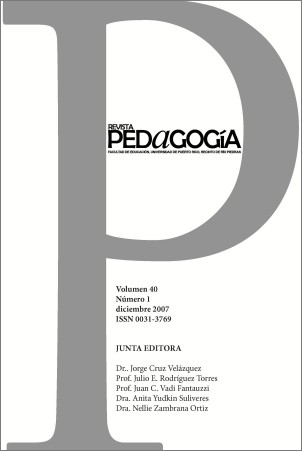Abstract
This qualitative research explored students grading from a holistic perspective. A sample of 32 teachers from elementary and middle public schools answered a self-administered instrument and participated subsequently in focus groups. Teachers describe grading as a complex and difficult process. Their narratives revealed several interrelated facets that help to understand this intricate process and to explain grading differences among teachers. Facets were: (1) teacher‘s grade meaning; (2) value judgments made while grading; (3) perceived consequences of grades; (4) teacher‘s perceived role; (5) ideas about children‘s nature and their behavior, learning, and classroom evaluation; and (6) students subjective knowledge. These results suggest a theoretical model for understanding and investigating classroom grading.
How to cite:
Collazo, A. (2019). Una exploración a la intrincada experiencia de calificar el desempeño estudiantil. Pedagogía, 40(1), 79-116. Retrieved from https://revistas.upr.edu/index.php/educacion/article/view/16837
The contents published in the Puerto Rico Journal of Education is freely distributed under open access practices, in accordance with the Creative Commons license, Attribution-NonCommercial 4.0 International (CC BY-NC 4.0). Through these principles, the journal and its authors allow readers to access, reproduce and share articles in full text. Users should give credit to authors in a reasonable way without suggesting they have their support. Under no circumstances, readers may make use of the contents for commercial purposes. The authors retain copyright on their works.

